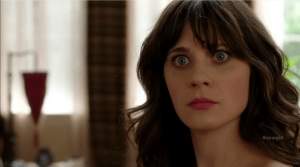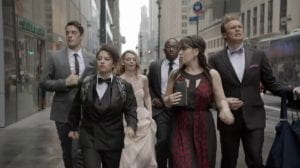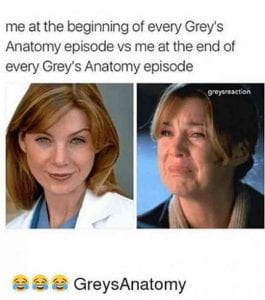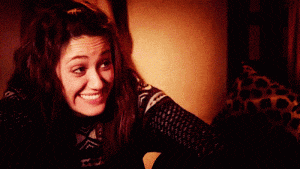1. GENDER AND RACIAL REPRESENTATION IN CHILDREN’S TELEVISION PROGRAMMING IN KUWAIT: IMPLICATIONS FOR EDUCATION
Al-Shehab, Ali. “GENDER AND RACIAL REPRESENTATION IN CHILDREN’S TELEVISION PROGRAMMING IN KUWAIT: IMPLICATIONS FOR EDUCATION.”Social Behavior and Personality, vol. 36, no. 1, 2008, pp. 49-63. ProQuest, http://prx.library.gatech.edu/login?url=https://search.proquest.com/docview/209925892?accountid=11107.
This source explores the effects of gender stereotypes in Egyptian satellite television and Kuwait national television on children. The study found that the Kuwait national channel tended to under represent minorities in the country, along with women. Likewise, portrayals of these characters tended to confirm to traditional stereotypes. The study argues that since children are so susceptible to conforming to the gender stereotypes seen on television, that children should be educated earlier on about the fact that what is demonstrated on television is not an accurate representation of gender roles. This source is relevant to us because it explores the effects of demonstrated gender stereotypes on children. While this study was performed on television channels in other nations, the fact that children are easily influenced means its effects can be compared to those of shows in the United States. It can allow us to demonstrate how gender roles influences children.
2. Gender Representation on Gender-Targeted Television Channels: A Comparison of Female- and Male-Targeted TV Channels in the Netherlands
Daalmans, Serena, Mariska Kleemans, and Anne Sadza. “Gender Representation on Gender-Targeted Television Channels: A Comparison of Female- and Male-Targeted TV Channels in the Netherlands.” Sex Roles, vol. 77, no. 5-6, 2017, pp. 366-378. ProQuest, http://prx.library.gatech.edu/login?url=https://search.proquest.com/docview/1927952499?accountid=11107, doi:http://dx.doi.org/10.1007/s11199-016-0727-6.
This study analyzed gender representation in two kinds of television shows: those which targeted female viewers and those which targeted male viewers. It evaluated how opposite genders were demonstrated in each of these two scenarios, and the respectfulness of these portrayals. The location of this study was the Netherlands, and the shows analyzed were Dutch. It was found that, regardless of genre as well as the country of origin, women were underrepresented on men’s channels more so than men on women’s channels. Furthermore, women were more stereotypically represented on men’s channels than they were on women’s. On the contrary, men were more often represented in non-stereotypical ways on women’s channels. The source also argues that, because of the increased societal status of women in the modern day, male shows have felt more pressure to highlight masculinity. This source could be of use because, while it appears to highlight gender roles in adult shows, its implications could be traced down to children’s shows. Since there are certainly many shows which are tailored to specific genders on children’s televisions, the portrayal of gender stereotypes on these shows is important to analyze. This source can provide some insight into these trends in show writing.
3. Television Cartoons: Do Children Notice It’s a Boy’s World?
Thompson, T.L. & Zerbinos, E. Sex Roles (1997) 37: 415. https://doi.org/10.1023/A:1025657508010
This study analyzed how gender stereotypes affected children aged four to nine years old by conducting interviews with these children. The children were asked questions which allowed the researchers to infer what opinions the children had regarding female and male cartoon characters. It was found that children often considered male characters to be more violent and active, whereas girls were portrayed as being more domestic and appealing to boys. It was also noted that the children correlated expectations of genders and job preferences, with what they observed on television. The article mentions that parental intervention could have an impact on whether or not children draw these conclusions from cartoons or television in general. This article could be a valuable source to us as it provides information about the effects of television on children and their interpretation of gender roles. More significantly, this article allows us to directly correlate television with children’s perceptions of their gender roles in society, such as how it influences their desires to enter certain careers or act in certain ways.
4. Children’s construction of fantasy stories: Gender differences in conflict resolution strategies
Peirce, K. & Edwards, E.D. Sex Roles (1988) 18: 393. https://doi.org/10.1007/BF00288391
This source argues that, due to the influence of media and literature on children’s perceptions of gender roles, children’s creation of fantasy stories tends to mold into the conformities of gender stereotypes. Stories written by children tended to portray male characters as being more violent with more diverse careers, while female characters were more passive in conflict resolution. The article also mentions how the progressive and changing workforce (as in, women taking less traditional roles) had no effect on how female and male characters were portrayed in these children’s stories. In the boys’ stories, endings and conflicts were more likely to be resolved with violence, with conflicts more likely to be present in the stories in general. Overall, this source is worth analyzing because it provides insight into how the media (such as television) affects children’s imagination. The way these children write their fantasy stories can be directly correlated to the effects the media has on them. This would allow our research to prove a correlation between gender portrayal on television and its future effects on children.
5. The Gender-Role Content of Children’s Favorite Television Programs and Its Links to Their Gender-Related Perceptions
Jennifer Stevens Aubrey & Kristen Harrison (2004) The Gender-Role Content of Children’s Favorite Television Programs and Its Links to Their Gender-Related Perceptions, Media Psychology, 6:2, 111-146, DOI: 10.1207/s1532785xmep0602_1
This article sought to demonstrate the connections between first and second graders’ favorite television shows and their effects on children’s perception of the television characters. Upon studying the shows further, it was found that there was still a larger tendency for male characters to answer questions, be leaders, be ingenious, eat, or achieve a goal. Interestingly enough, it was also found that girls preferences for male stereotypical characters negatively impacted their perceptions of the female characters. It was found that children did not specifically seek out programming which was gender stereotypical, however, when they did observe these kinds of television shows, they tended to conform to those norms. This source is valuable to use because it provides insight into children’s perceptions of television programming. This source also provides a large amount of data which we can use to aid in our research of the effects of this programming on children. The study itself seems to further prove our argument, that children’s programming can have an effect on how children perceive their own gender norms.
6. Appraising gender role portrayals in TV commercials
Kolbe, R.H. & Langefeld, C.D. Sex Roles (1993) 28: 393. https://doi.org/10.1007/BF00289604
This study looked into the effects of television commercials on people’s perceptions of gender roles. The study examined hundreds of college students to see how different television commercials affected their perceptions of gender roles. While it was addressing college students, its implications extend beyond only young adults. It implies how commercials, which are designed to manipulate an audience’s opinion, can have even greater effects on people’s perceptions of gender when they incorporate extensive gender stereotypes. This research could be quite useful to us as commercial have wide effects on television audiences. This can be especially true for children, as commercials which are more conforming to gender stereotypes can help propagate these stereotypes in children. For example, if a child were to be watching television programming and see a toy commercial advertising towards a specific gender, then they could associate that toy as being for that gender. This study could allow us to explore these effects more, as commercials are just as much a part of the television experience as the shows themselves.




















